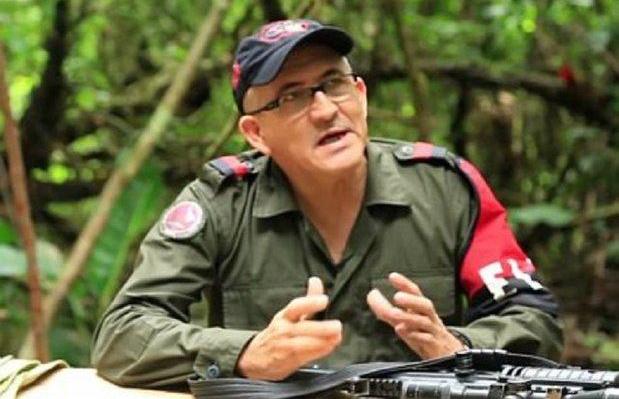The fact that Nicolás Rodríguez Bautista, alias "Gabino", chose Havana as the site from which to resign as the head of the Colombian National Liberation Army (ELN) did not surprise anyone. Gabino's successor, who is known as Antonio García, has also long enjoyed support and protection provided by the Castro regime in Cuba.
Gabino cited health problems as the reason for him stepping down as the head of the ELN, a guerrilla organization originally founded in 1964 and that ever since has taken up arms, engaging in various illegal activities in both Colombia and Venezuela.
Colombian security analysts predict that the rise of Antonio García, whose real name is Eliécer Chamorro Acosta, will mean a harder line by the ELN. This armed group, which sustains itself through drug trafficking and charging for inoculations (payment made by ranchers in return for the ELN providing them with "security"), also has major logistical support in Cuba.
García, for example, represents the wing of the ELN radically opposed to negotiation processes with various Colombian governments. The negotiations, which never progressed significantly, ended up foundering.
Chamorro Acosta is 65 years old. The influential daily El Tiempo notes that he is known among Colombian guerrilla groups for being rigid, uncompromising, doctrinaire and calculating. He was present at the unsuccessful peace talks with the government of Andrés Pastrana. His stance against those negotiation processes contributed to their failure, according to the Bogotá newspaper.
"Antonio García is a person who has enjoyed extensive protection and sanctuary in Havana. 30 years ago he already had Cuban IDs that identified him as an international aid worker. He had been assigned an apartment in a central area of Havana, and even during the Special Period, Cuba not only provided him with vehicles, but also gasoline, which was a highly coveted product," stated a Colombian journalist who in the 90s lived on the island and met the ELN's new leader.
"I was at several meetings with him in the late 90s. A psychologist friend had traveled from Bogotá, allegedly to attend the Havana Film Festival. This person, I found out later, was actually an ELN emissary whose purpose was not to attend the premieres of the films, as I had been told, but rather to hold meetings with Antonio García," this Colombian journalist (for security reasons, speaking on condition of anonymity) told DIARIO DE CUBA.
"In addition to her confidential meetings with Antonio García, this psychologist summoned a group of Colombians residing in Cuba, in my case for professional reasons, so that we could meet the guerrilla leader and he could explain to us the ELN's plans," he related.
The ELN guerrillas made a surprise announcement on June 24 that its leadership was changing, and that Gabino was no longer its top leader or commander. Gabino himself indicated that his replacement was Antonio García, as first commander; Pablo Beltrán, as second commander; and Pablo Marín, as third commander.
According to the explanation that Gabino gave about his withdrawal at the head of the ELN, it was due to health problems: "In July 2018, within the framework of the humanitarian agreement between the states of Colombia and Cuba, as a guarantor, I moved to this country, where I am undergoing a health treatment that I must continue."
"Historically, the ELN has enjoyed Cuban protection. It is not surprising that the entire leadership finds safe haven in Cuba, given the diversity and great number of arrest warrants against them," explained the Colombian journalist.
The magazine Semana had access to police files on Antonio García. He has 20 arrest warrants out on him, with Colombian authorities holding him responsible for homicide, kidnapping, genocide, personal injuries, forced disappearances, rebellion, terrorism, and recruitment, among other crimes and human rights violations.
